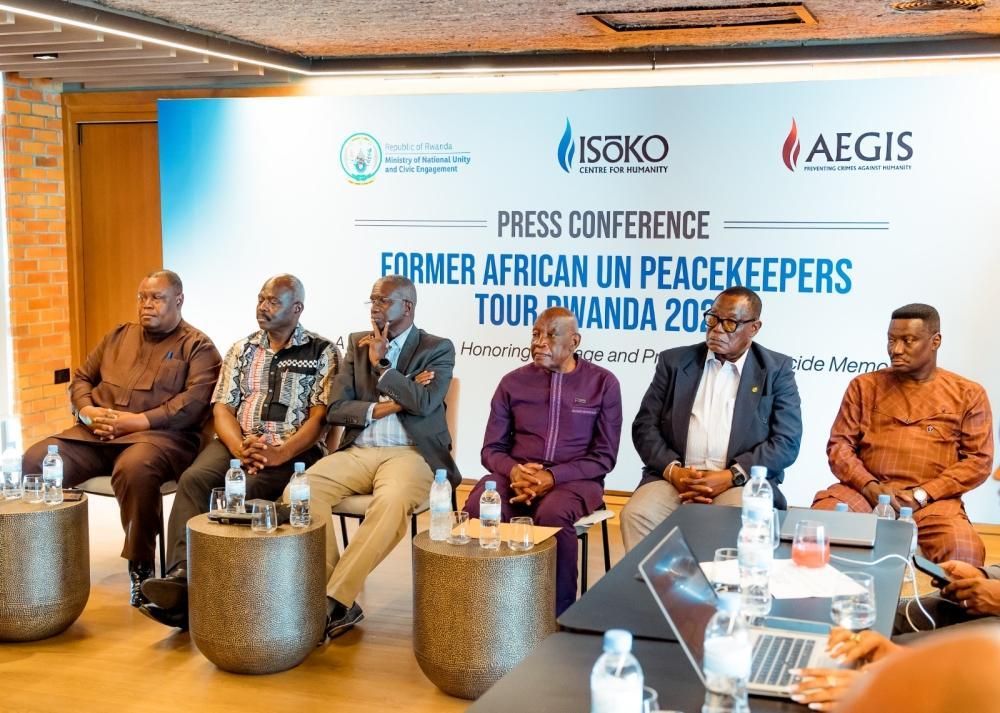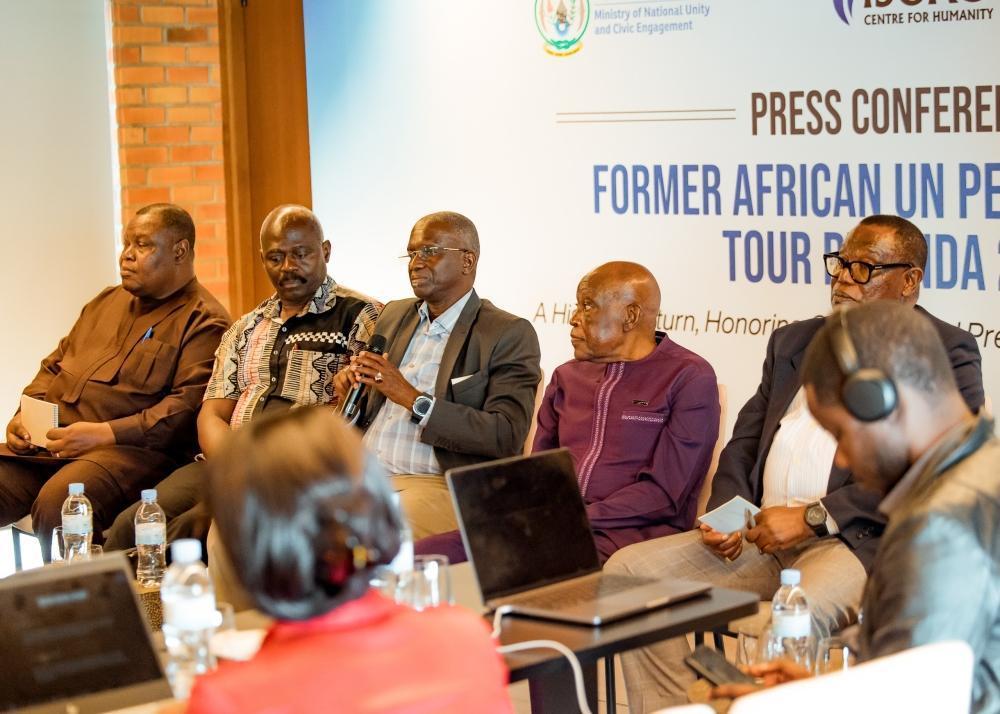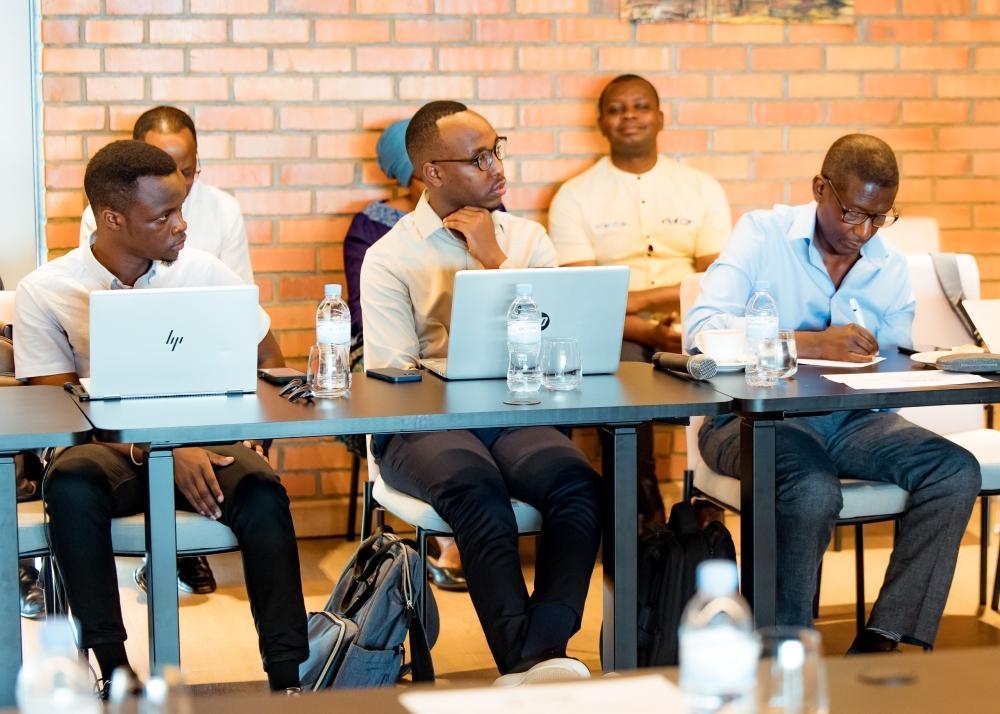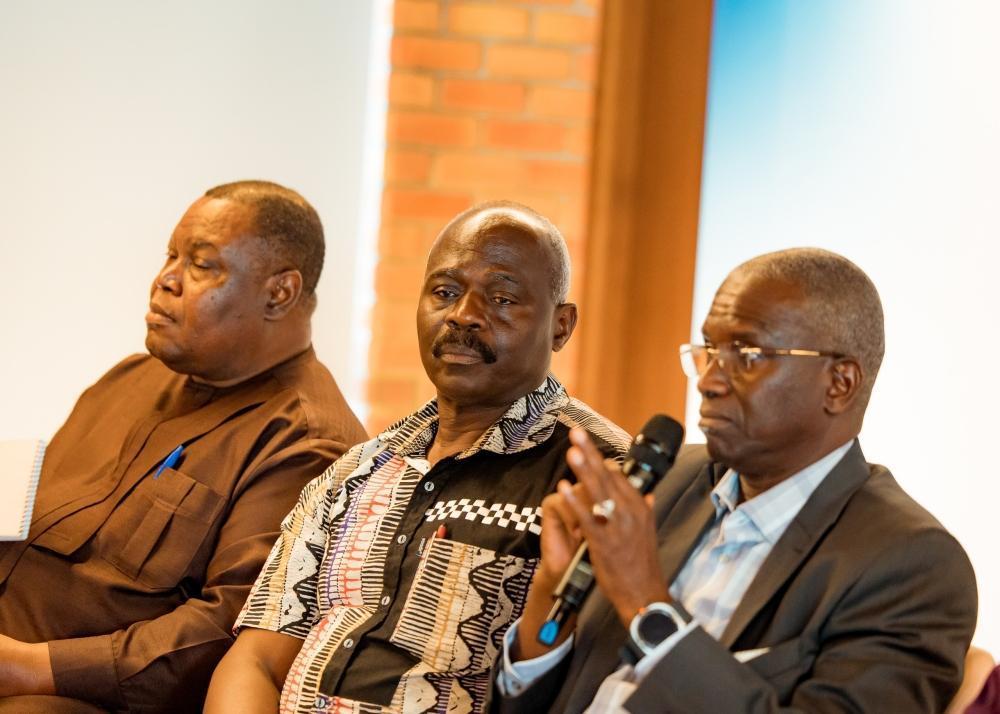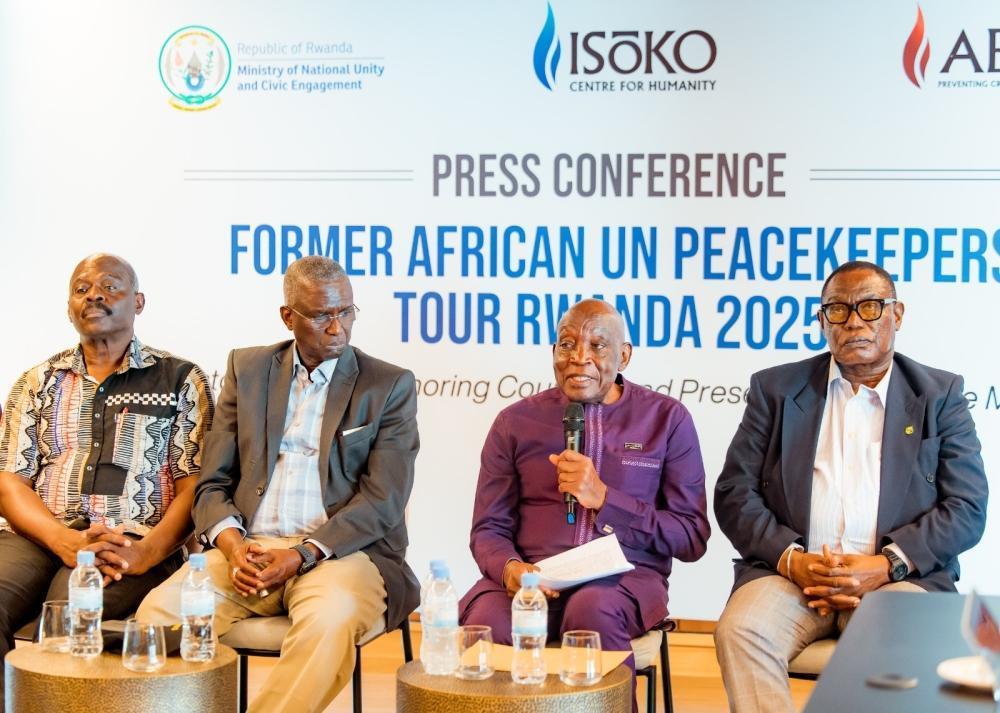Africa-Press – Rwanda. Former African UN peacekeepers, who refused to leave Rwanda during the 1994 Genocide against the Tutsi after the UN withdrew its troops, have called for stronger global education efforts to ensure the genocide is never forgotten and future atrocities are prevented.
The veteran African peacekeepers said this on Wednesday, August 20, at a news conference at Zaria Court in Kigali, as they concluded their commemorative and educational tour in Rwanda, which began on August 14.
Maj Gen (Rtd) Clayton Boanubah Yaache from Ghana, Brig Gen (Rtd) Martin Owusu-Ababio from Ghana, Brig Gen Elhadji Babacar Faye from Senegal, Major (Rtd) Peter Sosi from Ghana, Ex WO II Lucas Norvihoho from Ghana, and Ex WO I Sampson Agyare from Ghana, have visited various parts of the country, especially key sites that tell the history of the Genocide that claimed more than one million lives.
These include Genocide Memorials and museums that preserve the history of the liberation struggle.
Major (Rtd) Peter Sosi from Ghana said that educating the world and ensuring the memory of the Genocide against the Tutsi, along with its lessons, requires much more effort through education and civic engagement.
“Here in Rwanda, I see it happening, but around the world, I haven’t seen it apart from commemorations in different countries,” he said.
Sosi, who currently lives in the United States, noted that while commemorative events take place in universities and Rwandan communities abroad, they often lack follow-up educational activities.
“That is why I believe we can advocate for it to be added to school curricula, whether in elementary schools, middle schools, or colleges. If courses are crafted around the Genocide against the Tutsi, that would be very good,” he said.
“On a personal level, because of what I experienced here, most of the time I give presentations on Rwanda, and we emphasise the Genocide. I also talk about reconciliation and forgiveness, because even in churches, forgiveness can be difficult. I do this in elementary schools, colleges, and whenever I get the opportunity to speak.”
According to Sosi, Rwanda’s journey of recovery and national unity after 1994 offers a powerful lesson to the world.
“When the subject of Rwanda comes up, I try to tell people what it means and how we can live together. What Rwanda taught us is that reconciliation is possible, forgiveness is possible, and building a community with a vibrant economy like this is achievable.”
Brig Gen (Rtd) Martin Owusu-Ababio from Ghana emphasised that, as Rwandans, they must first work to heal the wounds within their own society, and once that is achieved, it serves as a powerful example for the rest of the world.
“Seminars on conflicts and conflict resolution, from secondary school to university level, can be carried across the globe,” he said.
“I see how important and relevant this mission is to the cause we are all pursuing. Let us encourage ourselves to use all the knowledge we have to conduct seminars, teaching, and learning, and then practically see the impact among ourselves,” he added.
For More News And Analysis About Rwanda Follow Africa-Press

